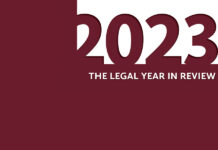Working from home and in remote domestic and overseas locations was rare until 2020, when it became a way of life due to global pandemic lockdowns. While now a familiar situation, the law in India and in other countries has not kept pace. Remote working, especially across borders, has created legal complications for expatriates working in India.

Managing partner
India Law Offices
Lockdown restrictions during mid-2020 and between April and June 2021 forced many foreign nationals and non-residents to extend their stay in India. The rule that anyone staying in India longer than 182 days is deemed to be a resident, has posed problems for many people who are now therefore liable to pay taxes in multiple jurisdictions.
The government has provided partial relaxation for individuals who arrived in India prior to 22 March 2020 for the period up to 31 March 2020, but their status in 2021 remains unclear. For 2020 the government has clarified that an individual’s short stay in India will not make them a resident for tax purposes. Furthermore, in the case of dual residency status, the tax treaty between the countries in which an individual has potential residency will determine their tax liability through the tie-breaker residency test.
For individuals stuck in India, the government has granted relief by automatically extending visas for the period of lockdown and a reasonable additional period to facilitate their return to their home country comfortably. Further, all existing visas, except diplomatic, official, United Nations’, international organisations’, employment or project visas remain suspended until the government lifts the prohibition on international air travel.
Where employees of multinational or foreign companies continue working in India under lockdown in a remote employment solution, they risk creating a permanent establishment (PE) on behalf of their foreign employer. A PE attracts a higher tax rate of 40%. The OECD has issued guidance that a home office set up during an extraordinary event or public health measures does not create a fixed place PE. A home office is not considered to be permanent and it is not at the disposal of the employer.

Partner
India Law Offices
However, if the dislocation of an employee in another jurisdiction continues after the ending of restrictions, the home office may be considered as a PE, subject to the permanency and disposal test. An agent exercising authority and control on behalf of a principal at an overseas location may end up creating a PE in India. Again, the OECD has provided guidance that, during a lockdown, this exercise of authority and control should be exempted, with no PE created for the foreign company. The exemption should end as soon as restrictions are lifted and normal business becomes possible.
There are problems with transfer pricing in lockdown. Intra-group transactions are most commonly based on the transactional net margin method or cost-plus method to determine the arm’s length price, which involves the historical data of the enterprises involved. Multinational companies have incurred huge losses during the covid period because of pandemic costs. The allocation of such losses and costs between the related enterprises may face challenges in determining the arm’s length price. This may lead to an increase in disputes with the income tax authorities.
Individuals and companies should plan now for future lockdowns. Individuals should retain copies of lockdown notifications and record the number of days that they have stayed in India. Their passports should be valid for at least six months longer than the expected duration of their trip.
It is recommended that individuals apply prior to travelling for visas with longer validity periods, in order to avoid additional paperwork. If an individual’s passport or visa expires during a lockdown, they may sometimes need to apply for an exit visa from the requisite Foreigner Regional Registration Office.
The legal teams of companies need to watch for lockdown notifications and issue guidance. Companies should keep in view the number of working days of their teams working from remote locations. This will avoid PE and unexpected tax demands due to laxity in recalling their teams after lockdown restrictions have ended. Devising and maintaining clear policies for transfer pricing related cost allocation should also be a very high priority.
Gautam Khurana is the managing partner and Abhishek Hans is a partner at India Law Offices

D-19 (GF) & D-31, South Extension – 1
New Delhi – 110 049
India
Mumbai | Bengaluru
Contact details
Tel: +91 11 2462 2216 / +91 11 246 2218
Email: g.khurana@indialawoffices.com


























